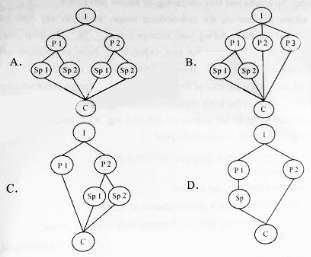题目内容
Why College Is Not Home
The college years are supposed to be a time for important growth in autonomy(自主性) and the development of adult identity. However, now they are becoming an extended period of adolescence, during which many of today’s students and are not shouldered with adult responsibilities.
For previous generations, college was decisive break from parental control; guidance and support needed help from people of the same age and from within. In the past two decades, however, continued connection with and dependence on family, thanks to cellphones, email and social media, have increased significantly. Some parents go so far as to help with coursework. Instead of promoting the idea of college as a passagefrom the shelter of the family to autonomy and adult responsibility, universities have given in to the idea that they should provide the same environment as that of the home.
To prepare for increased autonomy and responsibility, college needs to be a time of exploration and experimentation. This process involves “trying on ” new ways of thinking about oneself both intellectually(在思维方面) and personally. While we should provide “safe spaces” within colleges, we must also make it safe to express opinions and challenge majority views. Intellectual growth and flexibility are fostered on debate and questioning.
Learning to deal with the social world is equally important. Because a college community(群体) differs from the family, many students will struggle to find a sense of belonging. If students rely on administrators to regulate their social behavior and thinking pattern, they are not facing the challenge of finding an identity within a larger and complex community.
Moreover, the tendency for universities to monitor and shape student behavior runs up against another characteristic of young adults: the response to being controlled by their elders. If acceptable social behavior is too strictly defined(规定) and controlled, the insensitive or aggressive behavior that administrators are seeking to minimize may actually be encouraged.
It is not surprising that young people are likely to burst out, particularly when there are reasons to do so. Our generation once joined hands and stood firm at times of national emergency. What is lacking today is the conflict between adolescent’s desire for autonomy and their understanding of an unsafe world. Therefore, there is the desire for their dorms to be replacement homes and not places to experience intellectual growth.
Every college discussion about community values, social climate and behavior should include recognition of the developmental importance of student autonomy and self-regulation, of the necessary tension between safety and self-discovery.
1.What’s the author’s attitude toward continued parental guidance to college students?
A.Sympathetic B.Disapproving
C.Supportive D.Neutral
2.The underlined word “passage” in Paragraph 2 means.
A.change B.choice
C.text D.extension
3.According to the author,what role should college play?
A.to develop a shared identity among students
B.to define and regulate students’ social behavior
C.To provide a safe world without tension for students
D.To foster students’ intellectual and personal development
4.Which of the following shows the development of ideas in the passage?

 备战中考寒假系列答案
备战中考寒假系列答案书面表达
假定你是李华,与留学生朋友Bob约好一起去书店,因故不能赴约。请给他写封邮件,内容包括:
1.表示歉意;
2.说明原因;
3.另约时间。
注意:
1.词数100左右;
2.可以适当增加细节,以使行文连贯。


